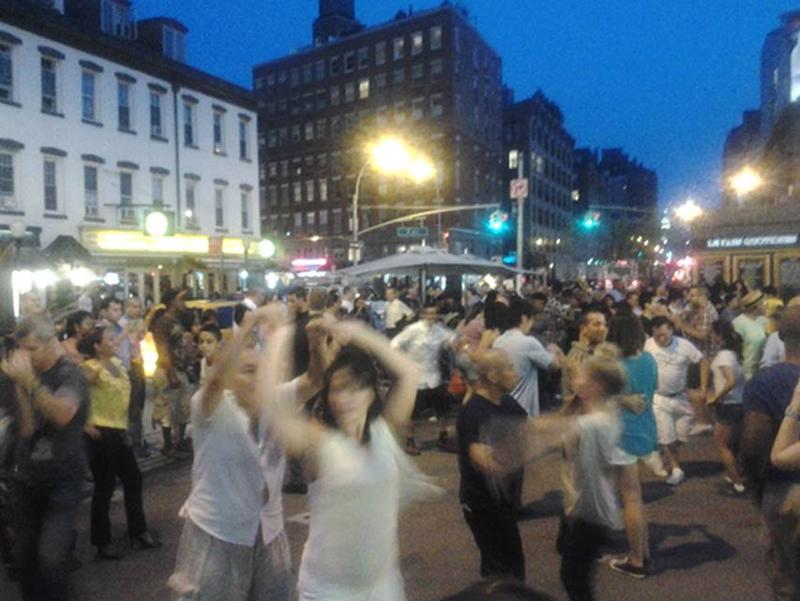The Pedagogy of Surprise

Billy Jno Hope "Salsa on 14th St" Photo used with permission
The pedagogy of surprise is what happens when you ask your students to describe the one specific moment or event or person that brought them to this particular place, in your classroom, and to find themselves traveling in this world.
The pedagogy of surprise is an acknowledgment that the very students who have been processed by years of high-stakes testing are ready to respond at the first opportunity to lowstakes writing.
The pedagogy of surprise is what happens when you walk into a writing classroom at a place like Queensborough Community College and listen.
The pedagogy of surprise is what it means to think of teaching and learning as an everyday experience.
The pedagogy of surprise is a play on Paulo Freire's pedagogy of the oppressed--respectful play.
The pedagogy of surprise means interacting with students as critical individuals not as empty vessels waiting for deposit. The means of banking is digital and the means for breaking the banks is digital as well.
The pedagogy of surprise is what it means to consider language as a virus and language as a way to heal, to consider language as the patois of the young and the artifact of all ages. It is to wonder what Emerson would have texted.
The pedagogy of surprise is what it means to recognize the fullness of the moment, as in a poem, and to recognize that experience can be integrated into a whole, as in a novel.
The pedagogy of surprise is to recognize that writing is a process, but the result is not processed. It is a pause on the way to somewhere else.